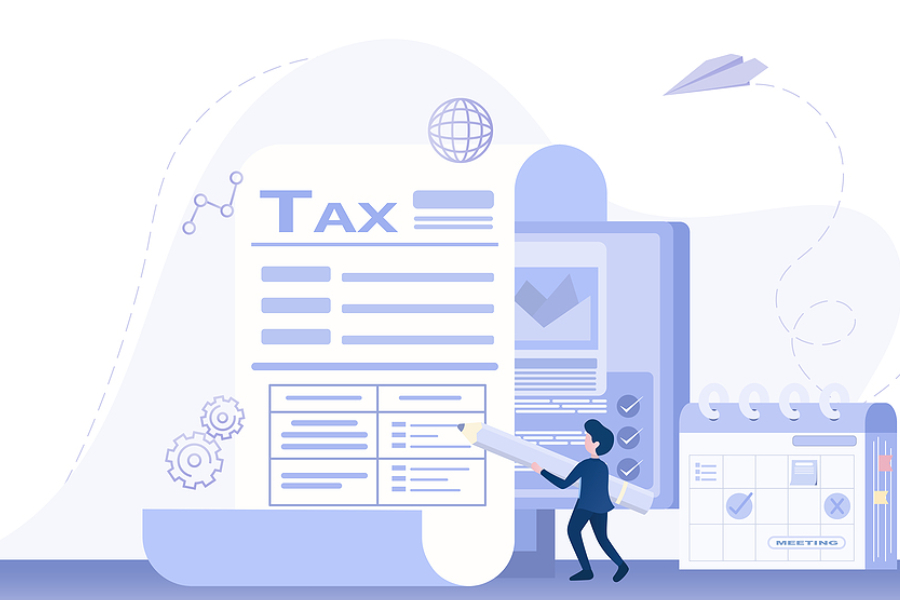 5 Potential Reasons Your Tax Return May Be Flagged By IRAS
5 Potential Reasons Your Tax Return May Be Flagged By IRAS
Filing your business tax return requires careful attention to the tax laws and regulations established by IRAS. While many businesses are able to successfully file their returns, whether on their own or with the assistance of a tax preparation company in Singapore, certain circumstances can increase the likelihood of your tax return being flagged by IRAS.
In this article, let us examine potential reasons why your business tax return may attract attention and provide valuable insights on avoiding them, ensuring a smooth and trouble-free corporate tax filing experience.
1. Inaccurate Income Reporting
One of the primary reasons for a business tax return to be flagged by IRAS is inaccurate income reporting. This can occur if the income reported on your tax return does not match your business’s records and financial statements. IRAS conducts thorough cross-checks, comparing the information you provide with other sources, like financial statements and transactions, to ensure consistency and accuracy.
To stay ahead and prevent potential issues, accurate record-keeping is crucial. Keep a comprehensive track of all sales, invoices, receipts, and financial documents to ensure precise reporting of business income on your tax return. Regularly reconcile your financial statements with your tax return figures, backed by proper documentation, to maintain alignment and accuracy.
2. High Variations in Expense Claims
Claiming excessively high expenses or reporting significant variations in expense claims can raise suspicions and trigger a flag from IRAS. While businesses are entitled to legitimate deductions and expenses, excessive claims without proper justification can draw attention and potentially lead to further scrutiny.
To minimise the chances of your business tax return being flagged for this reason, ensure that your expense claims are well-supported with proper documentation. Keep records of receipts, invoices, contracts, and other relevant documents that demonstrate the business purpose and necessity of each expense claimed. Implement internal controls and systems to ensure accuracy and consistency in expense reporting.
3. Unreported or Inconsistent GST Reporting
If your business is registered for Goods and Services Tax (GST), unreported or inconsistent GST reporting can result in your tax return being flagged by IRAS. This can include errors in sales figures, incorrect input tax claims, or failure to file GST returns accurately and on time.
To avoid potential issues, it is essential to maintain accurate records of your business transactions and ensure that your GST reporting aligns with IRAS requirements. Regularly reconcile your sales figures and purchases, review your GST returns for accuracy, and adhere to the deadlines for filing and payment. Seek professional advice if you have any uncertainties or complexities regarding GST reporting.
4. Large Discrepancies in Financial Statements
Discovering significant discrepancies between your business tax return and financial statements can be a cause for concern, potentially raising flags from IRAS. These discrepancies may manifest as variations in revenue, expenses, or assets reported in your financial statements compared to your tax return.
To mitigate this risk, it is essential to prioritise consistency between your financial statements and tax return. Take proactive steps by conducting comprehensive reviews and reconciliations of your financial records to identify and address any discrepancies. Additionally, ensure you maintain proper documentation and explanations for any adjustments or differences, enabling you to provide a clear and accurate representation of your business’s financial position.
5. Engaging in Aggressive Tax Planning
Engaging in aggressive tax planning strategies or arrangements that are deemed questionable by IRAS can lead to your business tax return being flagged for further investigation. These strategies may involve exploiting loopholes, utilising complex structures, or attempting to reduce tax liabilities in a manner that raises concerns about tax avoidance or evasion.
To avoid potential issues, engaging in responsible tax planning practices that align with IRAS regulations and guidelines is essential. Seek professional advice from qualified tax advisors who can provide guidance on legal and compliant tax planning strategies that suit your business’s needs.
Conclusion
Filing your business tax return accurately and in compliance with IRAS regulations is crucial to avoid flags or further scrutiny. By doing so, you can minimise the risk of your business tax return being flagged by IRAS and ensure a smooth and compliant tax filing process.
Supercharge your business with Counto, a trusted provider of tax and accounting services for SMEs in Singapore. Experience the transformative potential of our comprehensive services, ranging from tax preparation, accounting, and bookkeeping to company incorporation and secretarial assistance.
To discover how Counto can help your business thrive across multiple areas, visit our website or contact us via WhatsApp at (+65) 3159 4255 to schedule an appointment. Our dedicated team is ready to provide personalised guidance and support to help you navigate the complexities of financial management and propel your business towards success.






